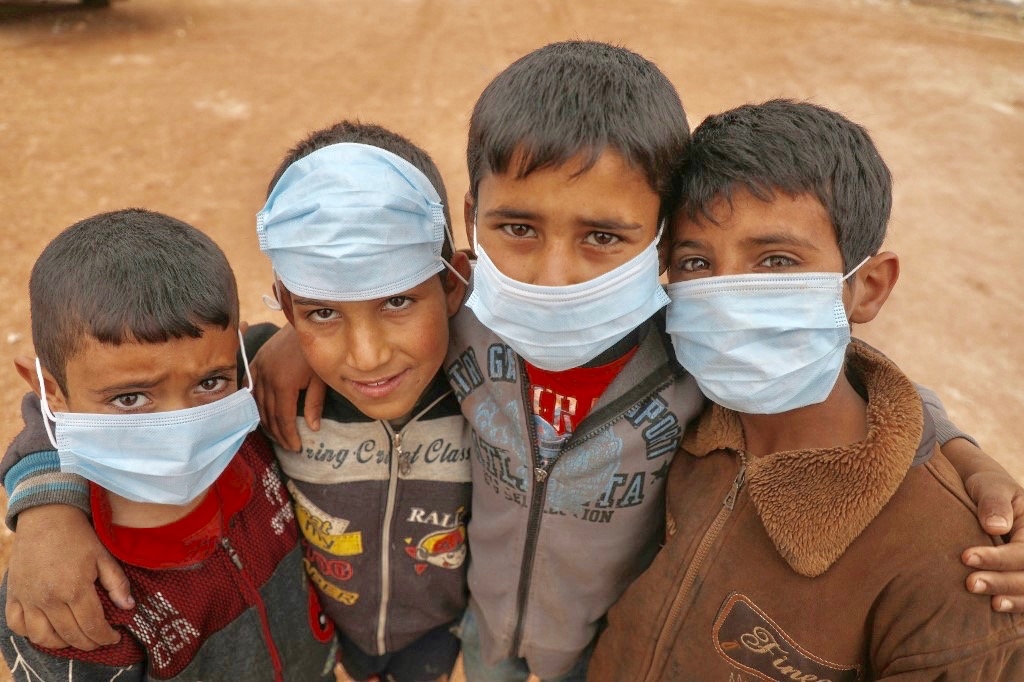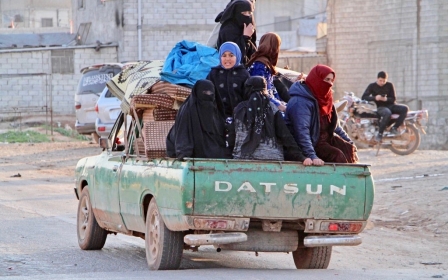Syria insists it is coronavirus-free, but takes broad steps to prevent spread

Syria delayed parliamentary elections, shut schools and cancelled most public events to prevent any spread of the coronavirus, as officials said the war-ravaged country was still free of the virus, in spite of reports that it was hiding cases.
Education Minister Imad al-Azab told a news conference on Saturday that schools would be closed until 2 April as authorities monitor for the virus, saying it was "not possible" for the government to conceal infections, according to Reuters.
Damascus said on Friday that all scientific, cultural, social and sporting events would be halted, and many public institutions would be closed or staffed at 40 percent of normal levels and operate during reduced hours, state news agency SANA said.
The health ministry said the steps were "precautionary" and intended to raise the health sector's readiness to control the virus should it be detected.
Unlike Syria, its five neighbours - Iraq, Israel, Jordan, Lebanon and Turkey - have all reported cases of the coronavirus, AFP said.
Still, the government went even further on Saturday, postponing to 20 May parliamentary elections previously slated for 13 April. A top religious council, meanwhile, said Friday prayers at mosques would be suspended until 4 April.
Britain-based war monitor, the Syrian Observatory for Human Rights, said Syrian doctors had detected cases of the virus in Damascus and at least three other provinces but were under orders to keep quiet. Azab denied this.
"There are some saying that there are infections being hidden, but no government nor the ministry of health can cover up a disease," he said. "If a disease is somewhere it wants to spread, so it's very hard to hide it."
Pakistani health officials said on Tuesday that at least five of their country's cases originated from patients travelling to Pakistan from Syria via Qatar.
It was not immediately clear whether the infections could have originated in Qatar, where cases have risen to 337, the highest among the Gulf Arab states.
Syria is one of just three countries in the Middle East that have yet to announce a confirmed coronavirus case along with Libya and Yemen. The three nations could face a daunting challenge to contain an outbreak after years of war that have ravaged their health-care systems.
The rebel-held and densely populated province of Idlib in northwest Syria, besieged by government forces and facing severe shortages of medical supplies and facilities, would suffer the most from an outbreak, according to AFP.
Syria had already suspended flights to and from several countries hit by the virus including Iran, with which it has extensive ties.
Iranian militias back Damascus in its nine-year war and Syrians flock to Iranian holy sites such as Qom, where Iran first detected the virus.
Middle East Eye delivers independent and unrivalled coverage and analysis of the Middle East, North Africa and beyond. To learn more about republishing this content and the associated fees, please fill out this form. More about MEE can be found here.





